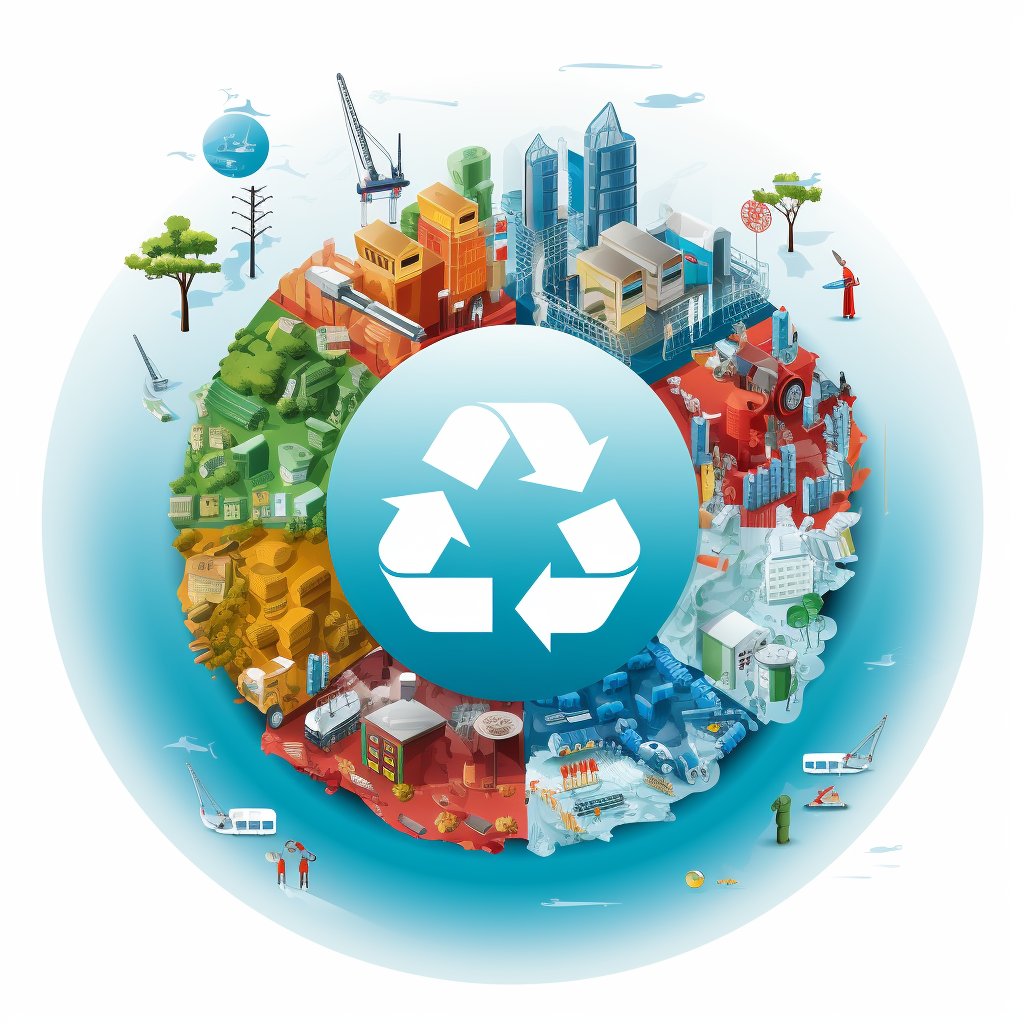The plastics industry has long been a significant contributor to the world economy, but the industry’s growth comes at a cost to the environment. Plastic pollution is a significant problem, increasing demand for traceability in the supply chain. Traceability allows businesses to track materials, products, and waste through the supply chain, which makes it easier to manage and reduce environmental impact.
In recent years, consumers and stakeholders have become increasingly concerned about the environmental impact of industries. Businesses are under pressure to improve their sustainability practices and reduce their carbon footprint. One essential tool for achieving these goals is supply chain traceability. By tracking the movement of goods and materials throughout the supply chain, companies can identify areas for improvement, reduce waste, and promote sustainable practices.

What is Supply Chain Traceability?
Supply chain traceability is the ability to track and trace the movement of products, materials, and waste throughout the supply chain. This includes tracking the origin and destination of materials, monitoring the movement of products, and managing waste disposal. Traceability can help businesses to manage their environmental impact and comply with regulations.
Different Types of Supply Chain Traceability:
Various types of traceability can be used in the supply chain. These include:
- Forward Traceability: This type of traceability involves tracking the movement of materials and products from the point of origin to the end consumer.
- Backward Traceability: This type of traceability involves tracking the movement of materials and products from the end consumer to the point of origin.
- Internal Traceability: This type of traceability involves tracking the movement of materials and products within a company’s own operations.
- External Traceability: This type of traceability involves tracking the movement of materials and products across the entire supply chain, including suppliers and customers.
Industrial Usage and Application Areas:
Traceability has a wide range of industrial usage and application areas, particularly in the plastics and recycling industries. For example, traceability can help businesses to manage their environmental impact, comply with regulations, and improve supply chain efficiency. In the plastics industry, traceability can help track the origin of raw materials, monitor the manufacturing process, and manage waste disposal.
Consumer Product Examples:
Many consumer products now include traceability features to help consumers make informed choices about their products. For example, some food products include QR codes that allow consumers to track the origin of the ingredients, while some clothing brands include tags that allow consumers to track the origin of the fabric.
Material Properties:
Traceability can be particularly useful in managing the properties of recycled materials. For example, recycled plastics can have different properties depending on the source of the materials and the recycling process used. By tracking the origin of the materials and the recycling process used, businesses can manage the properties of the recycled materials and ensure that they meet the required specifications.
Future Trends in Recycling:
The future of recycling will likely involve increased use of traceability to manage the environmental impact of the supply chain. This will include using blockchain technology to provide a transparent and immutable record of the movement of materials and products.
The future of supply chain traceability is expected to be driven by technological advancements, such as the use of blockchain and artificial intelligence. These technologies can provide a more secure and efficient way of managing the movement of materials, products, and waste through the supply chain. The market for traceability is also expected to grow, particularly in industries that are facing increased pressure to manage their environmental impact. For example, the global market for traceability in the food and beverage industry is expected to grow at a compound annual growth rate of over 9% between 2021 and 2026.
Market Price Developments:
Supply chain traceability can also impact market prices, particularly in plastics and recycling industries. Traceability can help ensure product quality and authenticity, which can lead to higher market prices. For example, products that are certified as being made from recycled materials may command a higher price than products that are not certified.
Global Impact:
Traceability can help manage the environmental impact of the supply chain and reduce pollution. The plastics industry, for example, is responsible for a significant amount of plastic waste in the ocean. Traceability can help manage the environmental impact of the supply chain and reduce pollution.
How Supply chain traceability has a global impact on the environment and the economy:
Supply chain traceability has a significant impact on both the environmental and economic aspects of industries worldwide. Regarding the environment, traceability helps reduce waste, minimise pollution, and promote sustainable practices throughout the supply chain. By identifying the origin and movement of raw materials and products, companies can identify areas where they can improve their environmental performance and reduce their carbon footprint.
Traceability also has an impact on the economy, particularly in terms of promoting transparency and fair trade practices. With the increasing demand for sustainable and ethically sourced products, companies that can provide traceability and certification will likely see increased market demand and higher product prices. This, in turn, can lead to increased investment in sustainable practices and technologies throughout the supply chain, which can drive innovation and growth.
In the plastics industry, for example, traceability has become increasingly important due to concerns about the impact of plastic waste on the environment. By implementing traceability, companies can ensure that plastic waste is recycled correctly and that it does not end up in the background. This can reduce the negative environmental impact of plastic waste while promoting the growth of the recycling industry.
The impact of supply chain traceability
Process:
The supply chain traceability process involves tracking the movement of goods throughout the supply chain, from raw materials to finished products. This can be achieved through various methods, such as the use of barcodes, RFID tags, and blockchain technology. By tracking the movement of goods and materials, companies can identify areas to improve their environmental performance, reduce waste, and promote sustainable practices throughout the supply chain.
Advantages:
Supply chain traceability offers several advantages for businesses, including improved transparency and accountability, enhanced brand reputation, and increased efficiency. By providing transparency throughout the supply chain, companies can build trust with consumers and stakeholders, leading to increased sales and brand loyalty. Traceability can also help identify improvement areas, which can lead to increased efficiency and cost savings.
Disadvantages:
The main disadvantage of supply chain traceability is the cost and complexity of implementation. Implementing traceability requires significant investment in technology, infrastructure, and training, which can be challenging for small and medium-sized businesses. In addition, there may be resistance from suppliers and other stakeholders who are reluctant to share information about their operations.
Overall, supply chain traceability is crucial in promoting sustainable and ethical practices throughout the supply chain. While some challenges and costs are associated with implementation, traceability’s benefits, including improved transparency and efficiency, make it an important tool for businesses looking to meet the demands of consumers and stakeholders for sustainable and responsible practices.
Supply chain traceability:
Traceability is a crucial element of managing the environmental impact of the supply chain in the plastics and recycling industries. By tracking the movement of materials, products, and waste, businesses can manage their environmental impact and comply with regulations. As technology continues to develop, the use of traceability is likely to increase, leading to more efficient and sustainable supply chains.
Supply chain traceability is vital for managing the environmental impact of industries such as plastics and recycling. It can help ensure the quality and authenticity of products, prevent unethical practices, and reduce pollution. The global impact of traceability is significant, particularly in industries that are major contributors to environmental pollution.






